|
Genres, Themes, Actors, and Directors:
- Buster Keaton Films
- Comedy
- Inheritance
- Silent Films
Review:
The premise of this Buster Keaton comedy is both inspired and infuriating, the latter due to the lead character’s frustrating passivity, as well an overall sense that the entire situation could have easily been handled in a much more “rational” manner (but then, of course, there would be no comedy). With that enormous caveat stated, however, I’ll concede that there’s much comedic brilliance here to enjoy: Keaton is at the top of his game visually, and the entire affair becomes increasingly surreal on every count (which is perhaps how the film should be viewed). The image of thousands of would-be brides descending on our hapless protagonist is one that will surely linger in your memory (especially if you begin to wonder about the life story behind each of those hard-worn faces…), and Keaton’s final race to make it back home to his beloved will have you scratching your head at the diversity of the geological path he takes.
Note: My reaction to this film reminds me of how I felt while watching Brewster’s Millions (1945), where the exhaustion of watching a financially-loaded time-bomb situation play out had me unexpectedly in knots.
Redeeming Qualities and Moments:
- A clever (if mildly infuriating) premise
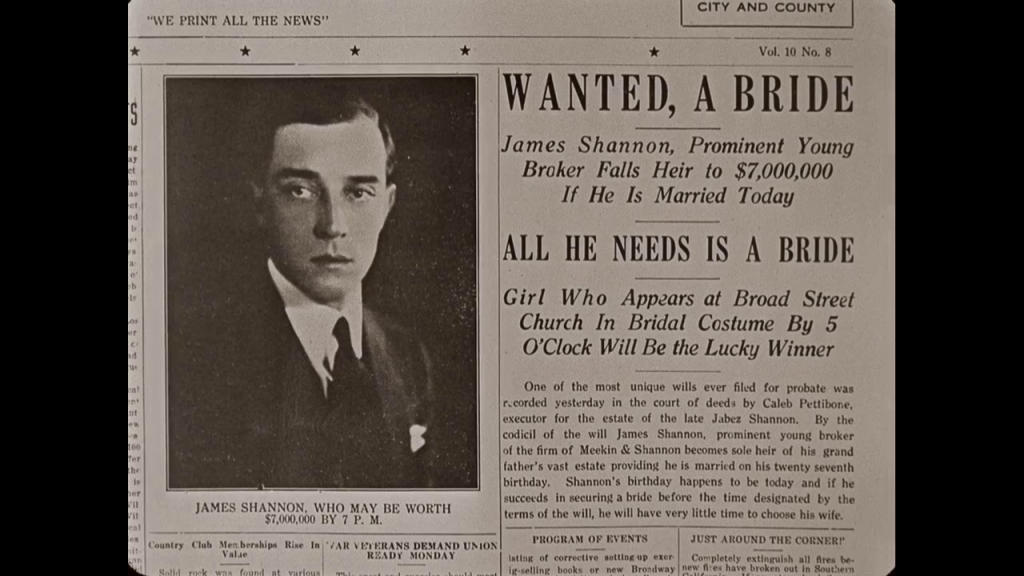
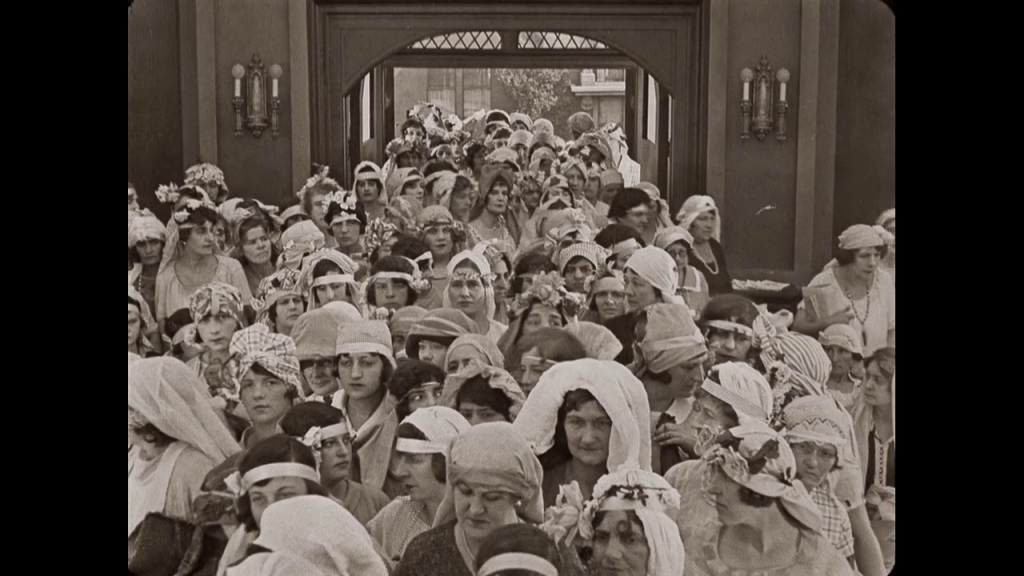
- Some fine visual gags
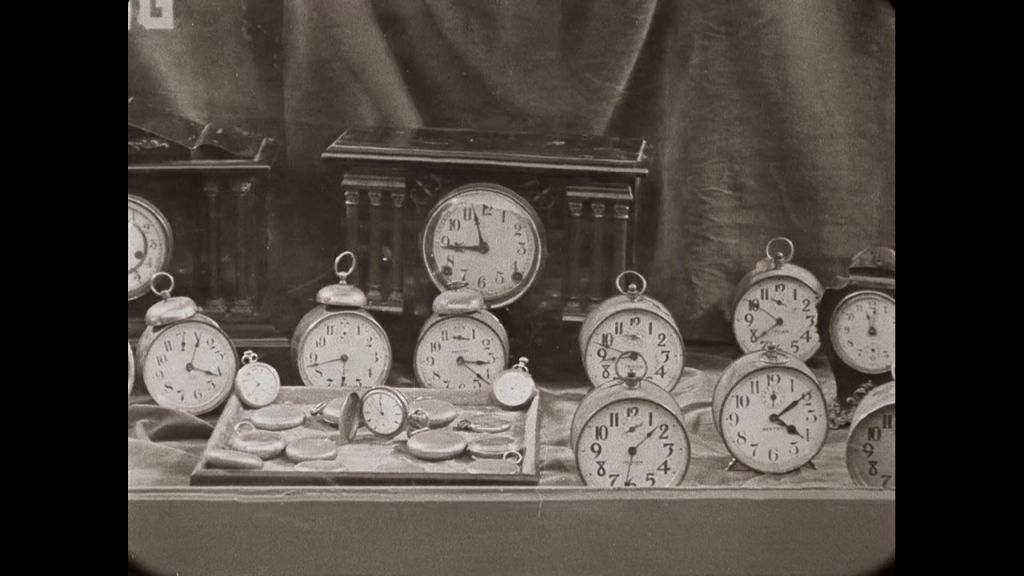
- The inspired “avalanche ending”
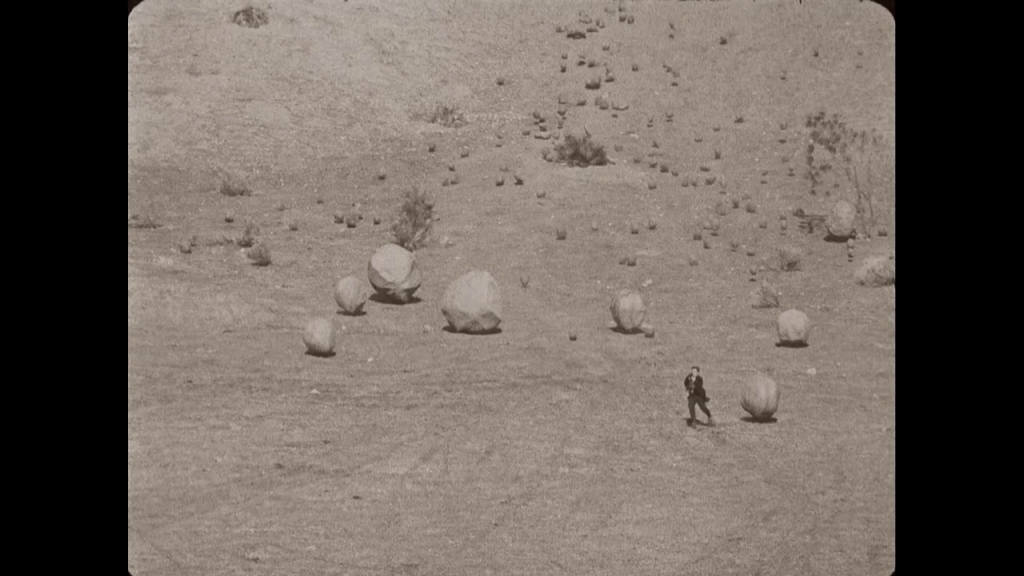
Must See?
No, though it’s strongly recommended for its final third. Listed as a film with Historical Importance and a Personal Recommendation in the back of Peary’s book.
(Listed in 1001 Movies You Must See Before You Die)
Links:
|
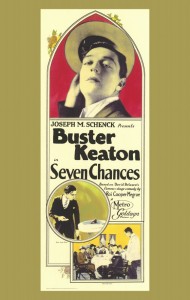




One thought on “Seven Chances (1925)”
A must. Among Keaton’s finest!
This is the kind of Keaton I treasure so much! The assessment puts it well: “…the entire affair becomes increasingly surreal on every count (which is perhaps how the film should be viewed).” Precisely.
I can hardly claim to suffer from “exhaustion” when I see this film. But then, I’m a champion of “Brewster’s Millions” as well. However, in the case of both films, the money aspect actually holds very little weight for me. To me, both films come from the school of “Write the ending first, and the thing will write itself.” In both cases, the stories do just that. Marvelously.
Unlike ‘The Cameraman’ – which kind of meanders its way through – ‘SC’ has a simple, solid idea. It doesn’t milk it. It doesn’t stretch it. It builds on it creatively and inexorably. Everything in the film is seamlessly tied to its simple idea. That’s its strength. Well, that’s the story’s strength. The film’s strength, of course, is Keaton. (Although, in extra fairness to the writers, this is a rare silent film in which the intertitles often shine with genuine wit.)
I’ve seen this film a number of times – and I rarely revisit a silent film. This one just genuinely cracks me up, right off in the first few minutes, during which we’re shown a year of seasons changing as Keaton’s Jimmie is still trying to get up the courage (in the exact same spot each time) to tell Mary that he loves her. How could you not fall for this guy? I don’t mean the character he’s playing – I mean Keaton. He is so amiably clueless, in a constant state of bewilderment – and, as things quickly escalate, there’s lots for him to be bewildered about.
Keaton directs himself here and it’s a good match. His work as both director and actor is not showy, it’s precisely funny. Keaton wants us to be just as surprised throughout as he is. And we are. All he has to do is remember one thing: whatever you do, get it done by 7 p.m. It’s the ‘whatever he does’ that he does so well.